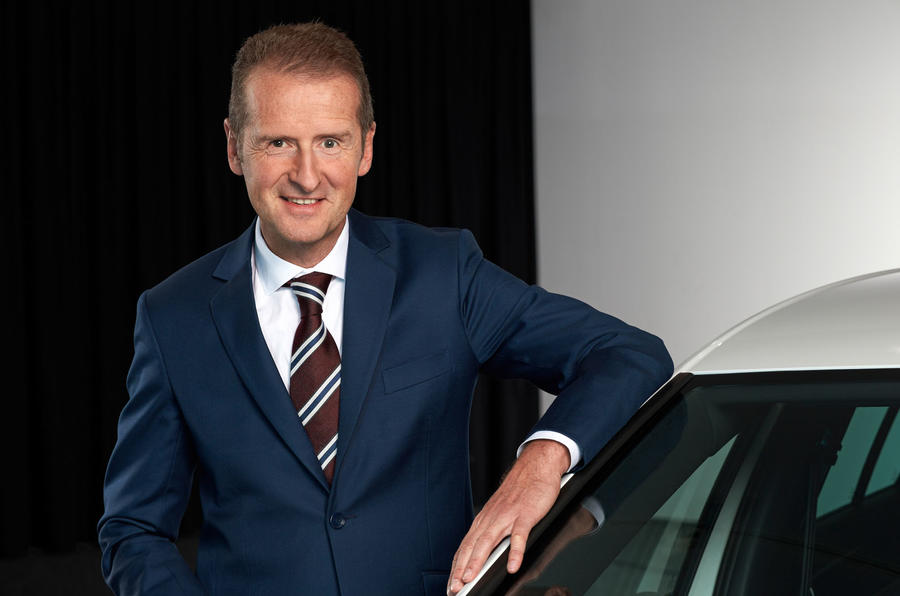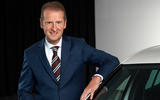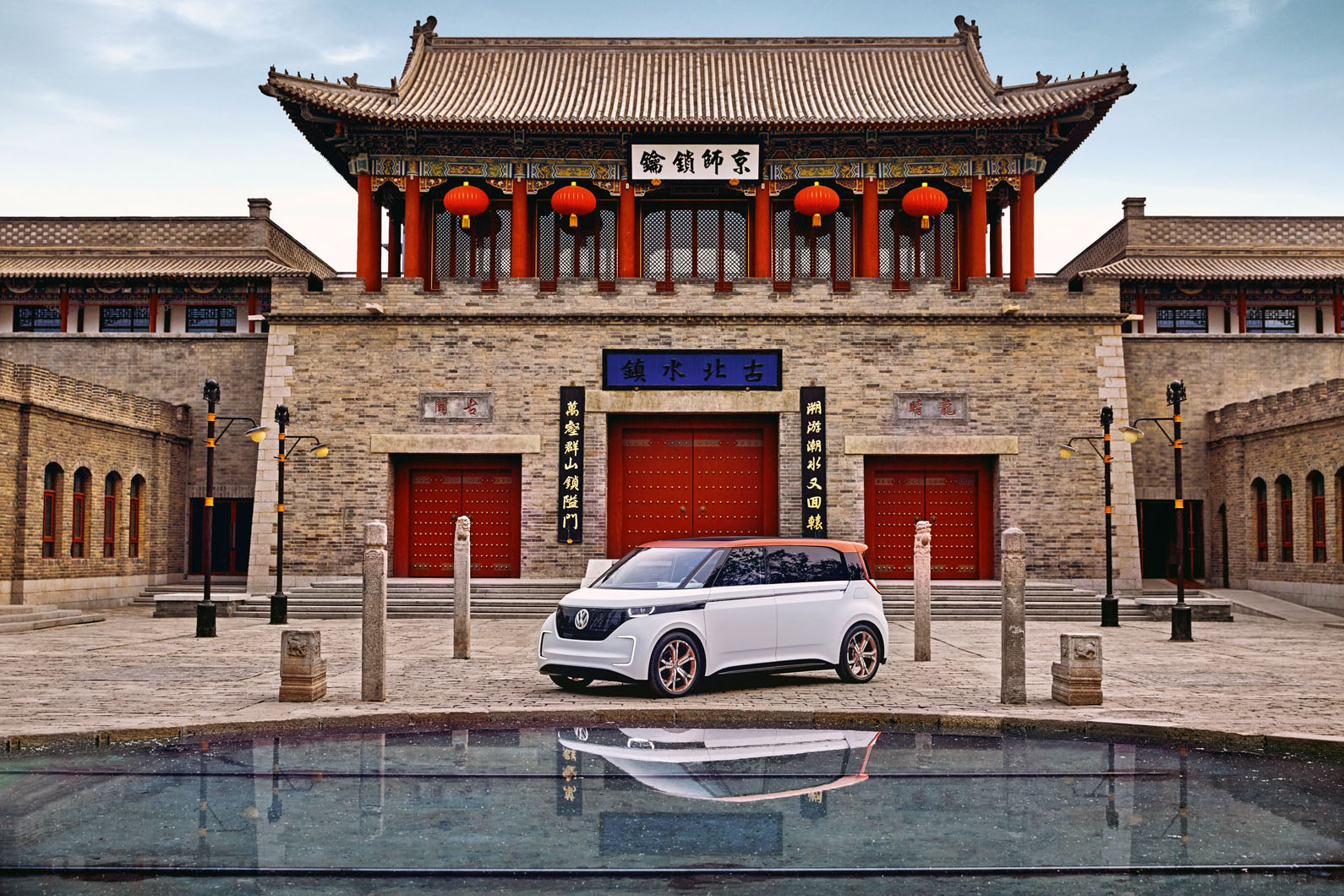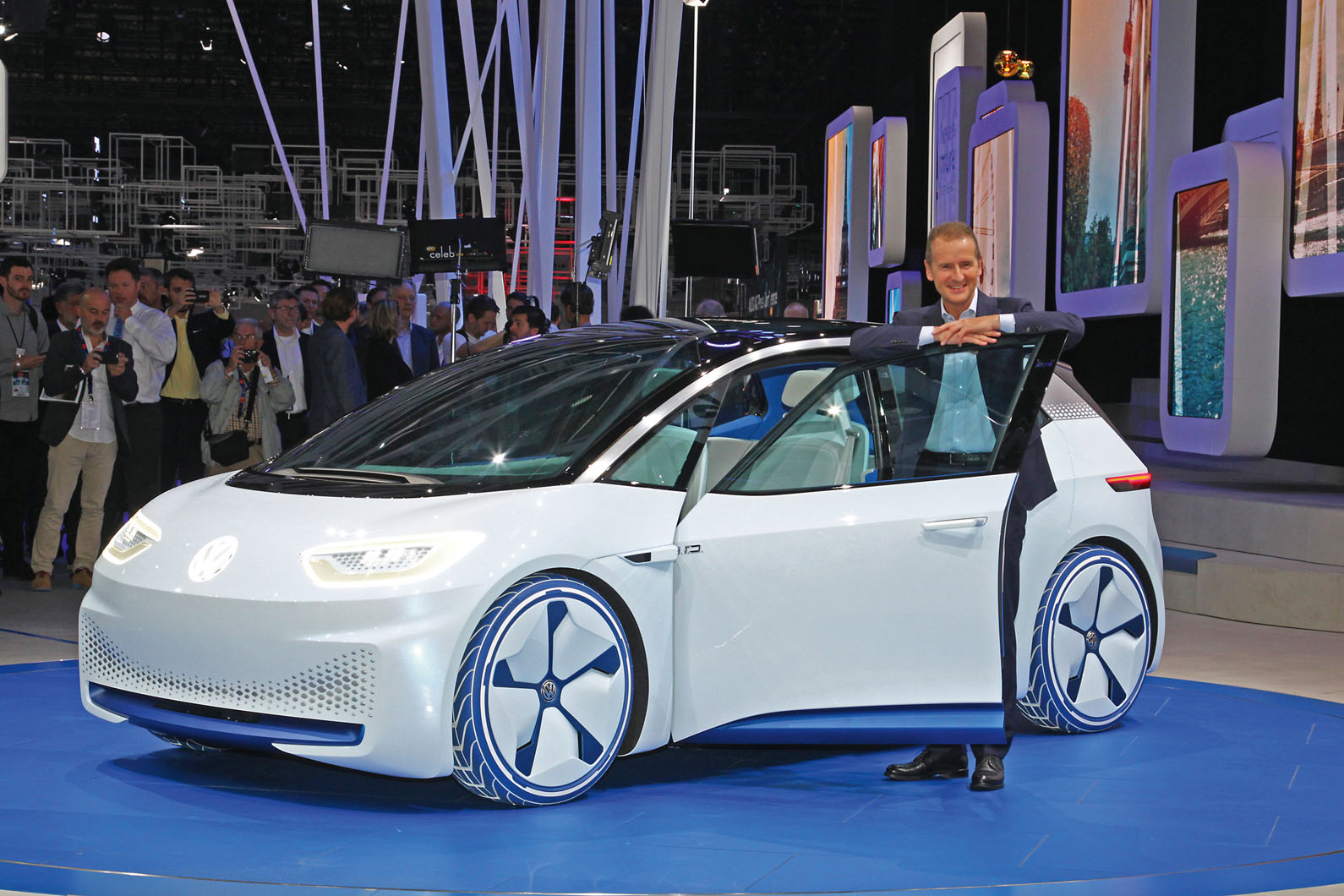The security is discreet but notably present, the office down a pure white corridor of Volkswagen’s Paris motor show stand.
Inside, it’s cool, calm and ordered. Standing before me is the man I’ve been asking for a year to speak to, tieless, smiling and welcoming. You’d never guess he faces one of the biggest challenges in corporate history – but, charged with restoring VW’s fortunes, that is exactly what is confronting company chairman Herbert Diess.
Perhaps the weight on his shoulders has been lifted for now by the reveal of the ID concept, VW’s take on the electric car of 2020. With a target range of 260 real-world miles, clever packaging that offers the space of a Volkswagen Passat in a Volkswagen Golf-sized footprint and a predicted price in line with the equivalent diesel, it offers an enticing view of the future that even the arch VW sceptic – of which there are now many – must pay heed.

The ID represents much more than just a new car: it’s a statement, both of intent and a path to a brighter future. Having come through the darkest days of the emissions scandal, and notwithstanding more dark days to come, it’s as clear a signal as VW could give that it intends to come back fighting, not just as a new, improved version of itself but as a reinvented version of itself.
“To be honest, the company we are becoming is a bit closer to my style,” Diess says, before turning apologetically to the PR minder. “To be completely honest, the company could be described as a bit overstated in former years. Now, humility is a word I choose to use. This is not a company of criminals. It is a company of good, honourable people. What happened was morally wrong, but we are prepared to change and prove there is a reason for customers to stick with us. But we have a lot of work to do to restore faith.”




















Join the debate
Add your comment
For all his high-minded words
This is not America
Well their short term strategy is to flood the market with SUVs of all hue and sizes across their brands. Since its a Volkswagen it's a diesel and conveniently Europe allows them to sell their dirty diesels as feverishly as before. Though given the congestion in old European cities, one would think they should be more concerned over the fatal emissions that kill thousands every year than Americans.
@fadyady, Yes, which makes me
Electric
Now they offer the "Id" Series by 2020. By then the i3 will be on its 2nd or 3rd iteration. Voorsprong durch Technique - I don't think so.
Regarding the European recall 'package', I doubt if VAG could take the financial hit on top of the cost of the US compensation. So they will literally fight to the death to avoid it as it would finish the Company.
Lapps
Except its pretty clear BMW
I'm sure I'm being a bit dumb
Really?
Then what's taking them so long? Why are there still thousands and thousands of people waiting for this " super easy " fix?
VW's Euro diesels were
In the US, it is highly unlikely that VW will be able to come up with a fix for the 2.0TDI. It will require new catalytic convertors and maybe for some models retrofitting a urea treatment system.
The buyback terms in the US are incredibly generous. The value of the car as of Sept 2015 ( estimated as if it was in very good condition - VW will not actually check if the car!) + another $5,000-$10000. So no wonder 95% of VW TDI owners are taking the buyback.
Apparently according to the
longtailpipe.com/2015/10/02/differences-in-us-and-eu-emissions-standard-key-cause-of-dieselgate/